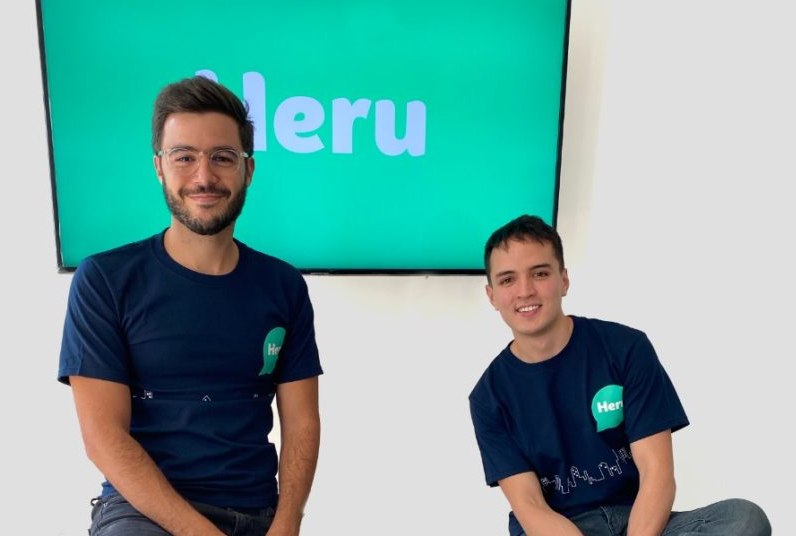Why We Invested In Heru: A Mexico-based Gig Worker Platform Heru Offering Online/Offline Services

The vast majority of employment in Latin America isn't formal, and across the region, there are 145 million independent workers.
Independent workers and gig-economy workers have been overlooked in Mexico and other Latin American countries, with no existing fintechs or incumbent banks offering relevant or affordable services. Last year, there were over 3 million app-based gig workers in Mexico and and an estimated 12 million across Latin America. The population is growing rapidly as the COVID-19 crisis and economic recession increases unemployment, reduces formal wages, and forces millions more to seek informal and app-based income opportunities.
Most of the gig workers in Latin America spend their time on the street without access to a place where they can feel safe, and are often not allowed to gather on sidewalks or in parks or access restrooms. They are also treated poorly by the platforms -- workers in Latin America are considered independent contractors and do not benefit from traditional employer-offered financial benefits like insurance, healthcare, and pensions. Today, platforms do not want to find themselves entangled in legal fights over employment status and thus are very conservative about any benefits they offer workers.
On top of all this, gig workers are financially vulnerable. Through our Digital Hustle research, we’ve learned that they struggle from financial instability and have limited access to further income-generating opportunities. Drivers and couriers rarely have any form of insurance because current options are not relevant to their needs or are too expensive. Mexico, for example, will not cover a road accident with a motorcycle. Consequently, only 10% of Mexicans have life insurance, 7% have private health insurance, and less than half have auto insurance.
Platform workers’ incomes fluctuate severely. Mexican Uber drivers experience 22% week-over-week income volatility. When they can’t make their working capital ends meet (e.g. gas, top-ups, etc.) or pay their monthly bills, they turn to high-interest rate loans. Even though there is an increased amount of credit options in Latin America, most of them continue to focus on people who have a full-time job and a credit score. Workers also lack productive assets and opportunities to generate more income. 40% of app workers that deliver on a bike in Mexico City do so using a rented bike that has less than one-hour time limits and is confined to specific areas in the city which limits their effectiveness. If workers can afford a bike, motorcycle, or car they generally have a long, complicated commute into city centers. Overall, workers with a bike want a motorcycle, and workers with a motorcycle often want a car. While each step increases their income potential, there are limited asset financing options available. Lastly, workers want more ways to earn income and would like to join additional platforms or find hourly opportunities, but often lack the tools or understanding of how to do so.
In order to tackle these challenges, financial services companies need to build trust with independent workers. This is why we have decided to invest in Mexico-based Heru - because the founders created both a technology platform that builds tailor-made services for the gig economy and independent workforce in Latin America and an offline/online solution to meet their financial needs. Heru also fosters community amongst independent and gig economy workers, which Flourish has learned is key to building trust within this population.
Through our work with Mei Facil we continuously saw the power of physical spaces and how drivers wanted to come and talk to someone if they had a challenge or merely see that the company existed when they had been cheated by the formal financial system. Heru has built “casas” across Mexico City, which are small wellness centers where independent workers can find a safe place to rest and access bathrooms, charging stations, vehicle repair tools, refreshments, and much more. These services are specifically designed to meet the most basic needs of gig-economy workers, and Heru Casas also act as an easy onboarding channel for digital financial services and other products that help them live a financially healthy life.
Within the Heru App, users can find access to tailor-made insurances, income smoothing credit products, bureaucracy and tax filing support, financial guidance, customized cell phone data plans, and much more. Heru is also unlocking the power of partnerships. It launched a partnership with UberEats to sign up its Loyalty Program partners in the app and have exclusive access to discounted financial services.
The founders, Mateo Jaramillo and Stiven Rodriquez, have a strong understanding of the challenges from their time at Uber and extensive customer interviews leading to the creation of Heru. They are committed to the mission and the continued pursuit to understand the challenges that independent workers have to go through to get access to services only full-time employees do. As the job markets transition to an independent workforce environment in the region, it is crucial for many industries to adapt quickly, offering services and products tailored to this growing population. Heru is taking a step forward in that direction in designing a one-stop-shop solution for an evolving independent workforce economy.